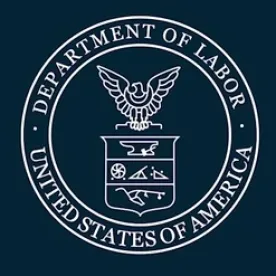While much attention is currently focused on whether Congress will extend, in whole or in part, the emergency $600 increase in unemployment insurance benefits (“UI”) that, until July 31, 2020, had been provided by the CARES Act (“Act”), the U.S. Department of Labor (“DOL”) is continuing to address questions about the other expansions of UI benefits under the Act, most recently, in an advisory letter issued on July 21, 2020 by the DOL’s Employment and Training Administration office (“ETA”). Of particular note, the latest ETA advisory letter instructs that an employee who refuses to work because of COVID-19 health or safety concerns nevertheless may be eligible under state law for UI benefits authorized under another provision of the Act—the Pandemic Unemployment Assistance program (“PUA”).
The PUA, which is set to expire on December 31, 2020, provides up to 39 weeks of UI benefits to people not otherwise eligible for regular unemployment compensation (including independent contractors and self-employed individuals). Generally, to qualify for PUA benefits, an individual must be “otherwise able to work and available for work within the meaning of applicable state law, except the individual is unemployed, partially unemployed, or unable or unavailable to work” because of one of the COVID-19-related reasons set forth in the CARES Act. These include when the person is: (i) ill from the virus; (ii) unable to reach their place of employment because they are quarantined; (iii) caring for a household member with the virus; or (iv) the primary caregiver of a child who is at home due to a forced school closure.
The ETA further instructs, however, that a person is considered “available for work under state law if the individual does not limit his or her availability for suitable work.” The key word in this sentence is “suitable,” because, as the ETA explains, numerous states have “suitable work” provisions “that consider work that unreasonably exposes an individual to safety risks to be unsuitable.” Accordingly, if an individual refuses work “that unreasonably exposes him or her to COVID-19” under state rules, the individual is still deemed to be available for “suitable” work and is not disqualified from receiving unemployment compensation, including PUA benefits.
The ETA also advises that an otherwise eligible individual may be entitled to PUA “if he or she were to refuse work that would be considered suitable under state law, but turned the work down for ‘good cause’ under state law.” The ETA, however, does not define “good cause.” Thus, as with the definition of “reasonable” safety concerns, the determination of whether a person has “good cause” to refuse work will turn on applicable state laws and regulations.
On another PUA matter, the ETA clarifies that an individual who becomes unemployed for reasons unrelated to COVID-19, but is currently unable to find another job because businesses are either closed or not hiring as a result of the COVID-19 pandemic, is not eligible for PUA benefits for that reason. To receive PUA benefits, the person would have to be covered by one of the circumstances set forth in the CARES Act (as discussed above), and COVID-19’s general effect on the labor market is not one of them.





 />i
/>i

